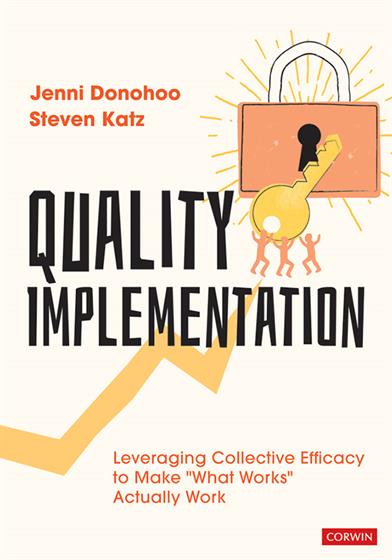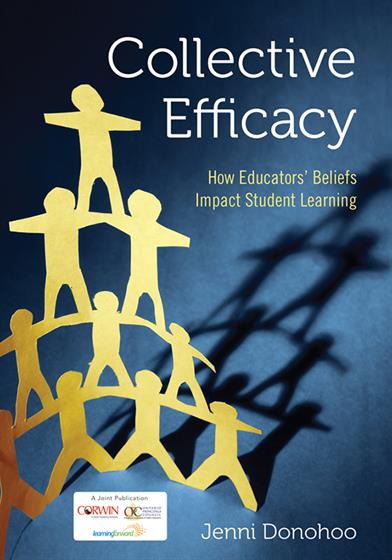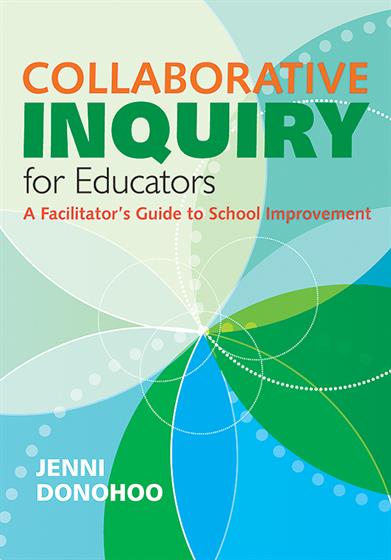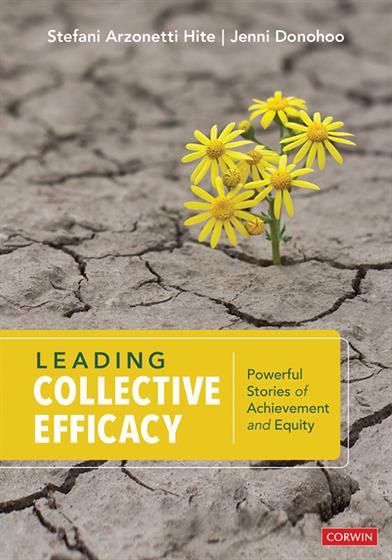
Demystifying Collective Efficacy
Guest(s): Jenni Donohoo and Megan Tschannen-Moran
Date: 04/12/2021
Run time: 46:34
Season 1, Episode 7
Collective efficacy has become a buzzword in recent years - with accompanying misunderstandings, misapplications, and criticisms. In this de-mystifying and debunking episode, Peter DeWitt talks with collective efficacy experts Megan Tschannen-Moran and Jenni Donohoo. The authors clarify that collective efficacy is about our collective beliefs in our own power to positively influence student learning. If a teacher (or leader) team has collective efficacy, then setbacks, challenges, and failures don't derail them. COVID-19 has actually provided a lot of opportunities for leaders and teachers to build collective efficacy throughout the school community. In this episode, you'll learn:
- The benefits and criticisms of collective efficacy
- The relationship between self-efficacy and collective efficacy
- The building blocks of collective efficacy
Listen, review and subscribe on: Apple, Spotify, YouTube,
Episode Audio
Episode Video

Jenni Donohoo
Jenni Donohoo is the director of Praxis-Engaging Ideas, Inc and a project manager for the Council of Ontario Directors of Education (CODE). Jenni has a PhD in Educational Studies and Supervisory Officer Qualifications. Jenni is a former classroom teacher and currently works with system, school leaders, and teachers around the world to support high quality professional learning. She has authored many peer-reviewed publications and three best-selling books, including Collaborative Inquiry for Educators, The Transformative Power of Collaborative Inquiry (with Moses Velasco), and Collective Efficacy: How Educators’ Beliefs Impact Student Learning. Jenni’s areas of expertise include collective efficacy, metacognition, adolescent literacy, and facilitating collaborative learning structures.

Megan Tschannen-Moran
Megan Tschannen-Moran (Ph.D., The Ohio State University) is a Professor of Educational Leadership at the William & Mary School of Education. Inspired by her fourteen years of experience as the founder and principal of a school serving primarily low-income and minority students in a distressed neighborhood of Chicago, she is motivated to work at the intersection of theory and practice so that schools grow in their capacity to serve all students well. The coaching model presented in this book sits squarely at that intersection. Megan’s scholarly research focuses on relationships of trust in school settings and how these are related to important outcomes such as the collective efficacy beliefs of a school faculty, teacher professionalism, and student achievement. Her book Trust Matters: Leadership for Successful Schools (2nd Ed.) (2014) reports the experience of three principals and the consequences of their successes and failures to build trust. Another line of research explores school climate through the Vibrant School Scale that assesses the degree to which a school fosters enlivened minds, emboldened voice, and playful learning.

Peter M. DeWitt
Peter DeWitt (Ed.D) is the founder and CEO of the Instructional Leadership Collective, and approaches everything with a learner's mindset. He was a K-5 teacher for 11 years and a principal for 8 years. For over 12 years, he has been facilitating professional learning nationally, and internationally, based on the content of many of his best-selling educational books.
DeWitt's professional learning relationships are a monthly hybrid approach that includes both coaching and the facilitating workshops on instructional leadership and collective efficacy. His work has been adopted at the state level, university level, and he works with numerous school districts, school boards, regional networks, ministries of education around North America, Australia, Europe, Asia, the Middle East and the U.K.
Peter writes the Finding Common Ground column for Education Week with Michael Nelson and they host Corwin’s Leaders Coaching Leaders podcast. In 2020 DeWitt co-created Education Week's A Seat At the Table where he moderates conversations with experts around the topics of race, gender, research, trauma and many other educational topics.
Peter is the author, co-author or contributor of numerous books and his articles have appeared in educational research journals at the state, national and international level. His books have been translated into numerous languages.

Michael Nelson
There is no more noble profession than that of an educator was what Michael Nelson’s mom said almost every day while he was growing up. For almost 40 years, Michael has been an educator. His mom would be pleased.
Even though Michael still considers “teacher” as his primary title, he has served in roles of principal, district instructional leader, superintendent, assistant executive director developing professional development for the state of Washington, and currently as the Thought Partner for the Instructional Leadership Collective.
Michael has received many state and national awards during his time as a principal and superintendent. As principal, his school received the National Blue Ribbon Award from the United States Department of Education. As a superintendent, he was named Washington state’s 2019 Superintendent of the Year. During his tenure as superintendent, Michael was elected President of the Washington Association of School Administrators (WASA) by his peers.
Michael Nelson co-facilitates coaching, keynotes, and workshops with Peter DeWitt. Their first book “Leading with Intention” was released in May 2024.
Related Titles
This is a carousel with related book cards. Use the previous and next buttons to navigate.





